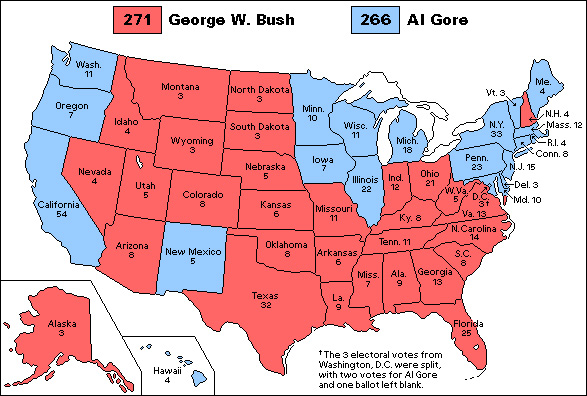Bush v. Gore was a landmark ruling by the Supreme Court of the United States that played a major role in deciding the 2000 presidential election. In its decision, the court ruled that Florida could not continue to recount disputed votes in several counties and other localities without applying a consistent statewide standard.

The race between Texas Governor George W. Bush and Vice President Al Gore was one of the tightest presidential elections in U.S. history. The outcome depended on which candidate won the state of Florida, where the vote was extremely close. With Bush ahead by fewer than 1,800 votes, the candidates took their dispute to court. Eventually, the Supreme Court of Florida ordered a manual recount that would include any ballot where there was “clear indication of the intent of the voter.” Bush appealed the decision to the U.S. Supreme Court.
In its majority opinion, the U.S. Supreme Court stated that the Florida court failed to establish a specific, uniform standard by which to determine the voter’s intent. As a result, the existing vote-counting guidelines failed to meet “minimal constitutional standards” involving equal protection and due process of law. In addition, because there was not enough time to develop and apply a uniform standard before the Electoral College deadline, the court ruled that no further recounts could take place. Gore then conceded the election to Bush.

The court decided Bush v. Gore by a 5-4 vote. The majority consisted of Chief Justice William H. Rehnquist and Justices Anthony M. Kennedy, Sandra Day O’Connor, Antonin Scalia, and Clarence Thomas. The minority consisted of Justices Stephen G. Breyer, Ruth Bader Ginsburg, David H. Souter, and John Paul Stevens.
See also Bush, George Walker ; United States presidential election of 2000 ; Gore, Al .
